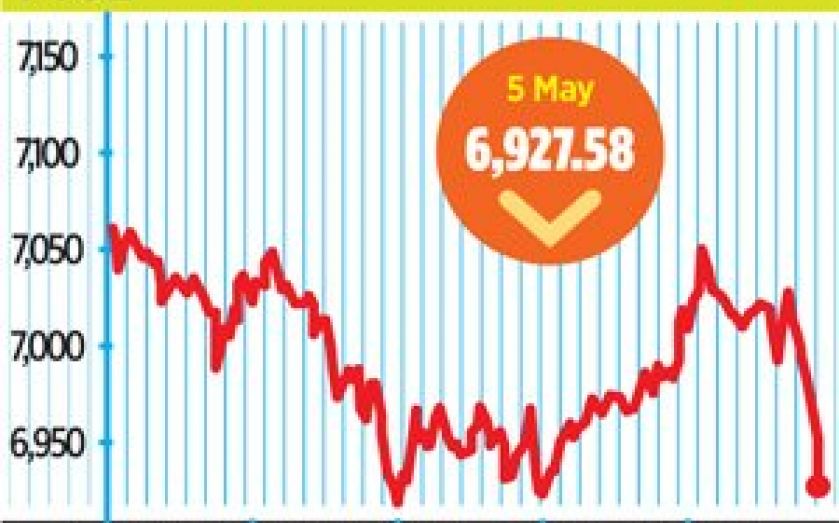Election jitters, HSBC and US losses hit FTSE – London Report

BRITAIN’S top share index closed lower yesterday, tracking sharp losses in the US market, with HSBC leading the banking sector lower, after saying that a bank levy was hampering its ability to pay a higher dividend.
A survey showing growth in the construction industry slowed sharply in April, while uncertainty about the outcome of tomorrow’s General Election also dissuaded investors from placing strong trading bets.
After trading higher in the first, the blue-chip FTSE 100 index gave up gains and finished 0.8 per cent weaker, at 6,927.58 points, dragged down by a 2.2 per cent fall in the UK banking index.
Europe’s biggest bank HSBC dropped 3.2 per cent, the biggest faller in the banking index, despite a four per cent rise in first-quarter pretax profit and after warning that Britain’s bank tax was preventing it from raising dividend payouts and this was a key concern of investors.
“The bank continues to flex its financial muscles with a reassuring update. However, concerns inevitably remain,” said Richard Hunter, head of equities at Hargreaves Lansdown.
“The scope of any further regulatory fines remains unclear, the increased cost of doing business, especially in the compliance area, has once more received air time, while the potential relocation of the business provides some uncertainty.”
Manoj Ladwa, head of trading at TJM Partners, said the banking sector also came under pressure following a sell-off on Wall Street on data that showed the US trade deficit rose in March, suggesting economic growth contracted in the first quarter, concerns about Greece and jitters over the election.
Greece stepped up diplomatic efforts with its Eurozone partners to avoid running out of money this month, when it must make a big debt repayment to the International Monetary Fund (IMF) as cash reserves dry up. Greek shares fell 3.9 per cent.
Investors also kept a close eye on the UK election. According to a Populus poll, Prime Minister David Cameron’s Conservatives are tied with the opposition Labour Party.
Voters in the world’s fifth-largest economy vote on 7 May, as polls predict no party will win an overall majority.
Losses recorded by the broader market were kept in check by a rally in commodity stocks.
However, analysts remained sceptical about the continuation of a rally in energy stocks solely on the back of oil price moves.